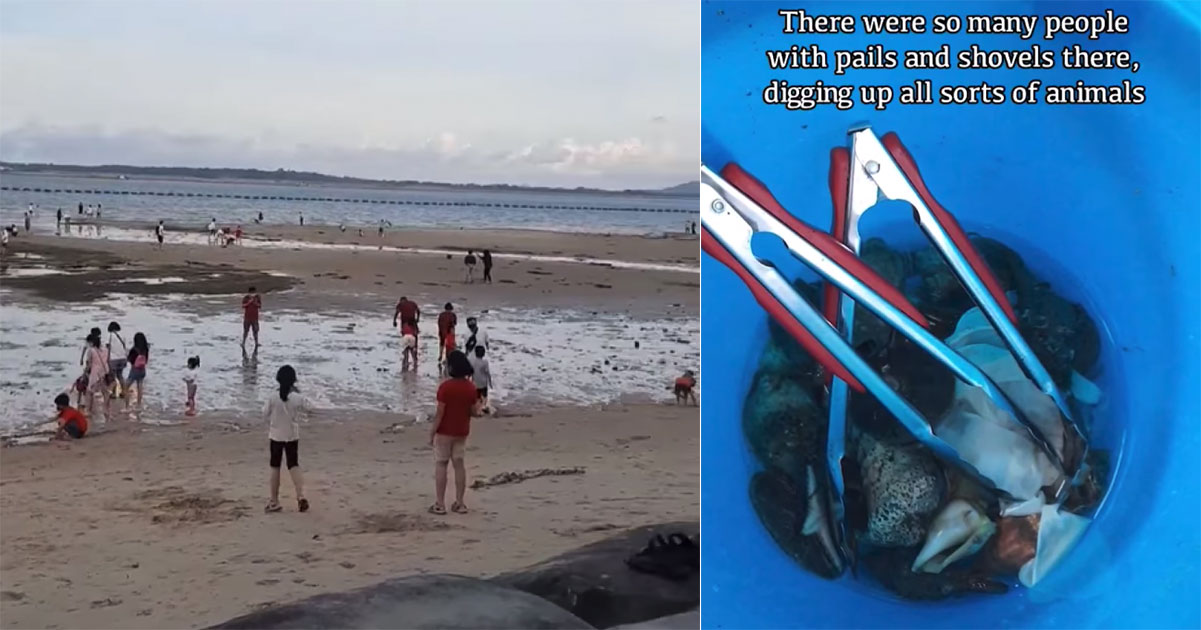Follow us on Telegram for the latest updates: https://t.me/mothershipsg
The Chinese New Year public holidays saw large crowds gathering and relaxing at a number of beaches in Singapore.
Things were pretty much similar at Changi Beach, except that crowds there were observed digging up various sea creatures to bring home on Feb. 1, the first day of Chinese New Year.
This came as a nasty shock to MJ, the co-founder of science channel "Just Keep Thinking", who witnessed many people armed with tongs, shovels and buckets digging up sea creatures at the beach.
Her channel uploaded a video of the situation on the ground and what she did to convince some families to release the animals they had caught back into the wild.
The video has since garnered over 380,000 views on Facebook.
People digging up "all sorts of animals"
MJ told Mothership she was there conducting one of her regular intertidal walks on Feb. 1 when she noticed that the beach was very crowded.
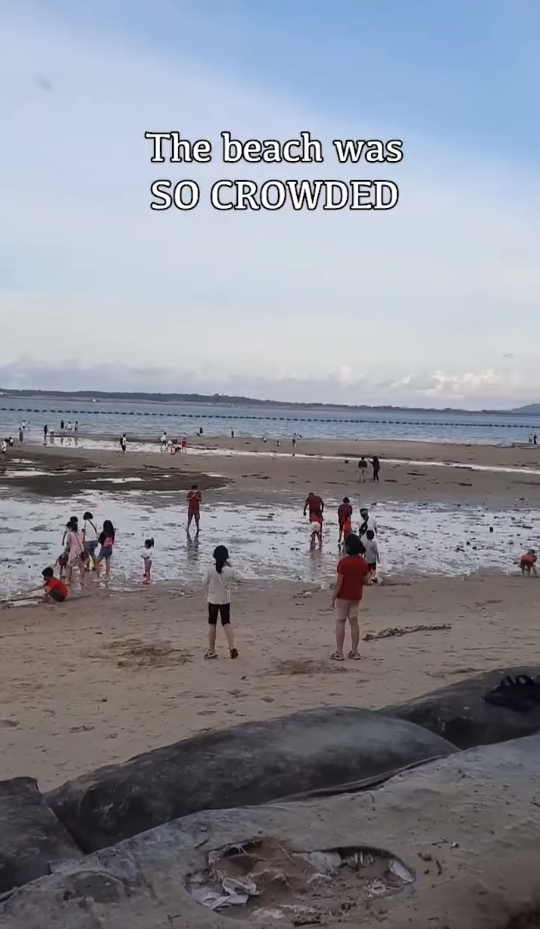 Photo via Just Keep Thinking.
Photo via Just Keep Thinking.
She also observed that there were many people there with pails and shovels, who were digging up "all sorts of animals".
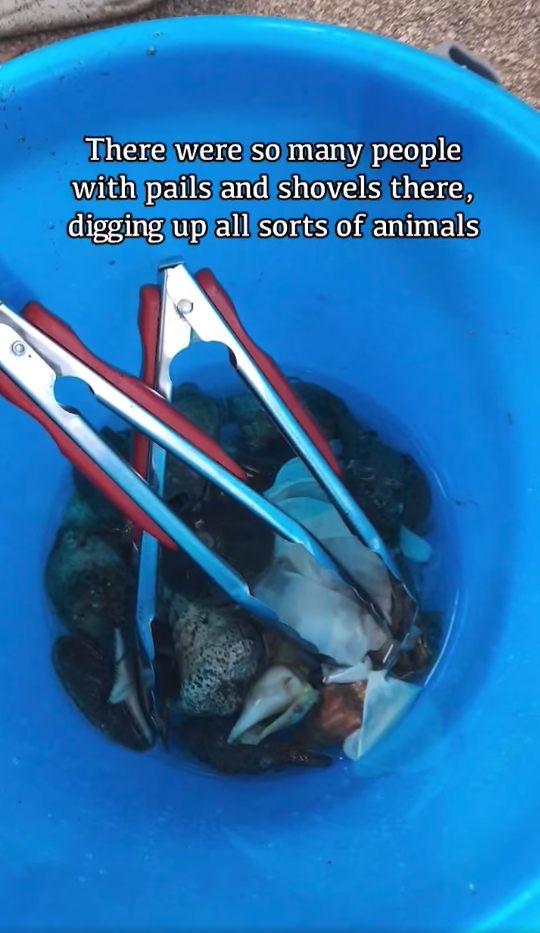 Photo via Just Keep Thinking.
Photo via Just Keep Thinking.
This scene of people indiscriminately picking sea creatures from Changi Beach to bring home reminded MJ of something similar that had happened in June 2021, when many young families were seen catching and collecting various intertidal wildlife.
She noticed that since Covid-19 hit, a lot more families have been trying to get respite from the lockdowns and restrictions by visiting the beach.
"That's when I started to see families picking up animals, most of them cannot be eaten and they are doing it for fun. I don't think Singapore has encountered this [on such a large scale] before then," she said.
MJ acknowledged that there are people who have been foraging the area for many years, but they had always done so sustainably, taking only creatures that can be eaten and only taking a small amount each time.
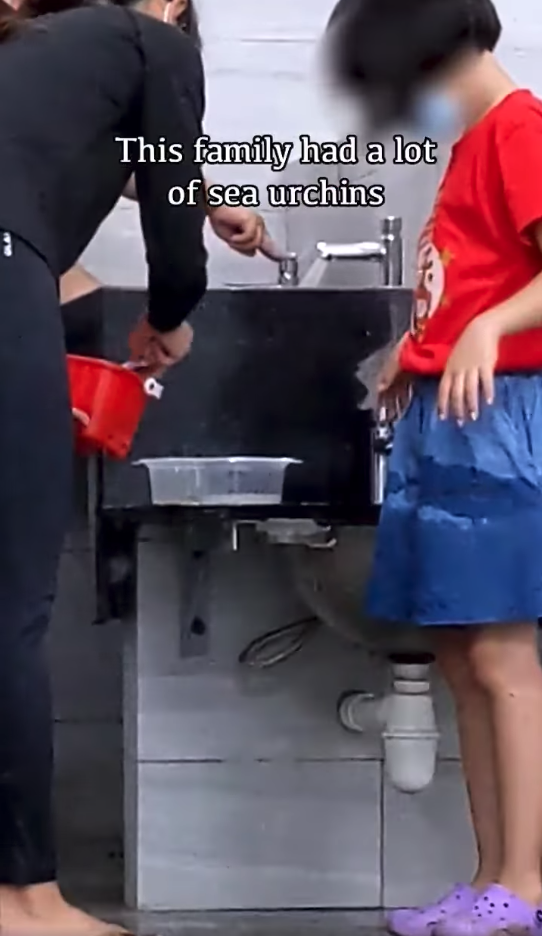 Photo via Just Keep Thinking.
Photo via Just Keep Thinking.
MJ also said some of the animals that families had picked up were dangerous and poisonous, such as sea urchins.
Tried to educate and convince families to release animals
After observing what was happening, MJ decided to step in to try to educate the families who seemed to be "collecting animals for fun".
She tried telling the families that the animals they collected likely would not survive outside their natural environments.
Some of the families also did not know that the animals they had picked up had stinging cells or sharp spikes that may potentially hurt their children.
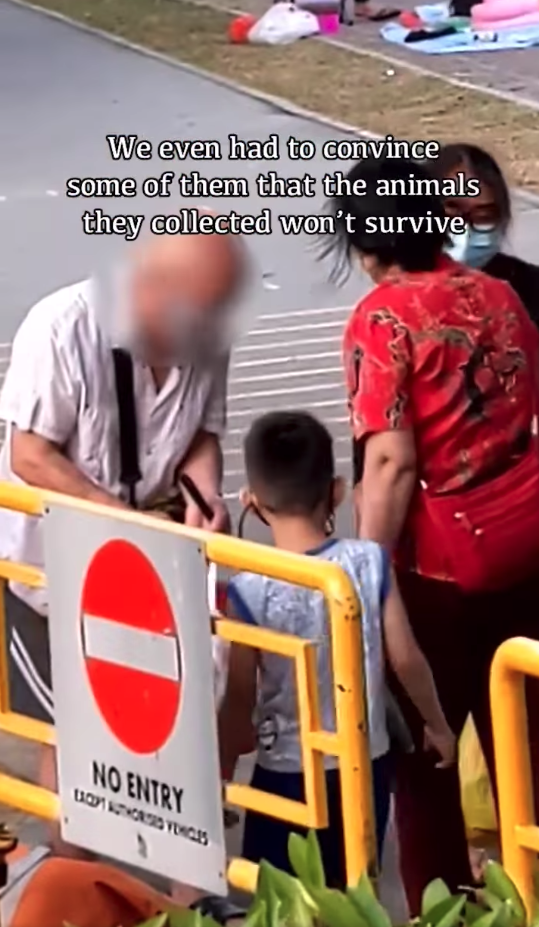 Photo via Just Keep Thinking.
Photo via Just Keep Thinking.
MJ suggested to these families that it may be better to release the animals and come back to the beach to visit them instead of bringing them home where they would likely die.
"I will approach them in a friendly manner, I'll ask them what they're doing, and share some facts about some of the animals they had picked up," she added.
She would then inform them that these animals are vulnerable, and suggested that it might be best to release them.
Most were receptive to MJ's methods, and allowed her to release the animals after learning more about them.
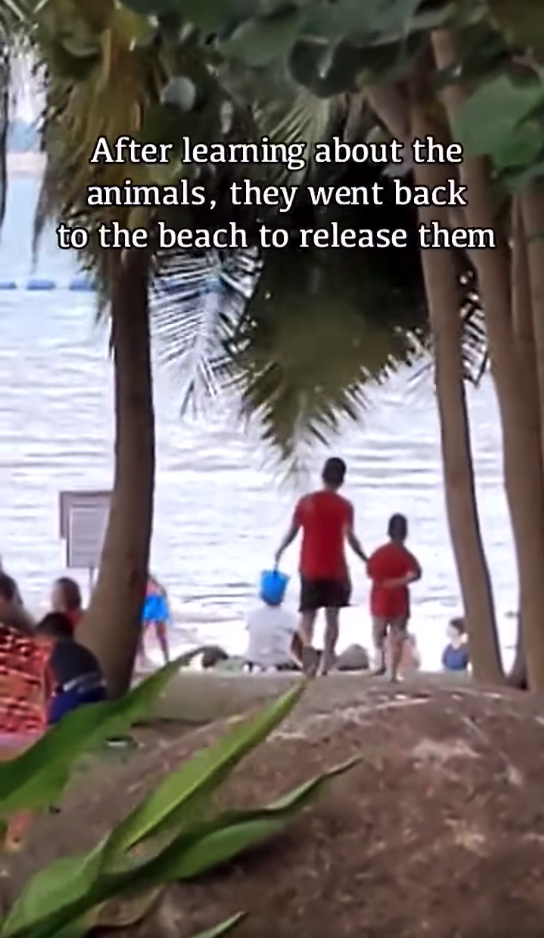 Photo via Just Keep Thinking.
Photo via Just Keep Thinking.
Other families, however, were less receptive to MJ's suggestions and did not understand what they were doing was wrong.
"I think it may be because of a language barrier that I wasn't able to bring my point across, or that we couldn't explain to them effectively and we didn't have proper strategies we could use [to convince them]," said MJ.
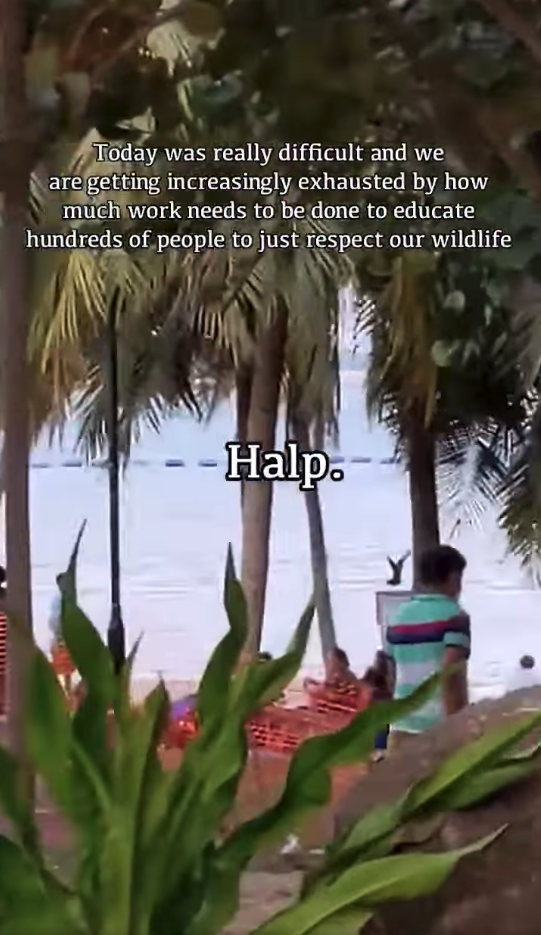 Photo via Just Keep Thinking.
Photo via Just Keep Thinking.
Intertidal zone at Changi Beach changed a lot over past year
MJ said it was "very sad" to see how much the intertidal zone at Changi Beach has changed over the past year.
"The place used to be teeming with biodiversity, and then it just dropped by a lot. I can guarantee that among the nature enthusiasts here, we can say that we definitely saw a drop in the [biodiversity of the area]," she said.
To her memory, MJ said the last time the intertidal zone was so vibrant was back in January 2021.
"There used to be a lot of sea stars, and now it's hard to just find one," she added.
She added that the change was most drastic after crowds were spotted picking sea creatures in June last year.
"Even though globally, we don't know what's the ecological impact of this one beach, but it's really sad especially for people who have a love for this particular area. It's very sad to see as someone who goes to this place a lot," said MJ.
NParks conducting patrols at Changi Beach
Mothership understands that NParks typically sends out patrol officers to the beach, especially on weekends.
However, there was an unexpected surge in people visiting the beach over the Chinese New Year public holidays.
Mothership also understands that more volunteers were deployed to the beach on Feb. 2, after the video by "Just Keep Thinking" went viral on Feb. 1.
In response to Mothership's queries after the June 2021 crowds at Changi Beach were spotted, NParks expressed their concern over the weekend crowd and their activity of collecting shellfish and other invertebrates.
It added that it would be stepping up efforts to educate members of the public about marine life, as well as increase patrols at intertidal areas.
It also said it would put up signages to remind people to protect sensitive marine life.
Mothership has reached out to NParks for further comments.
Top photos via Just Keep Thinking
If you like what you read, follow us on Facebook, Instagram, Twitter and Telegram to get the latest updates.
